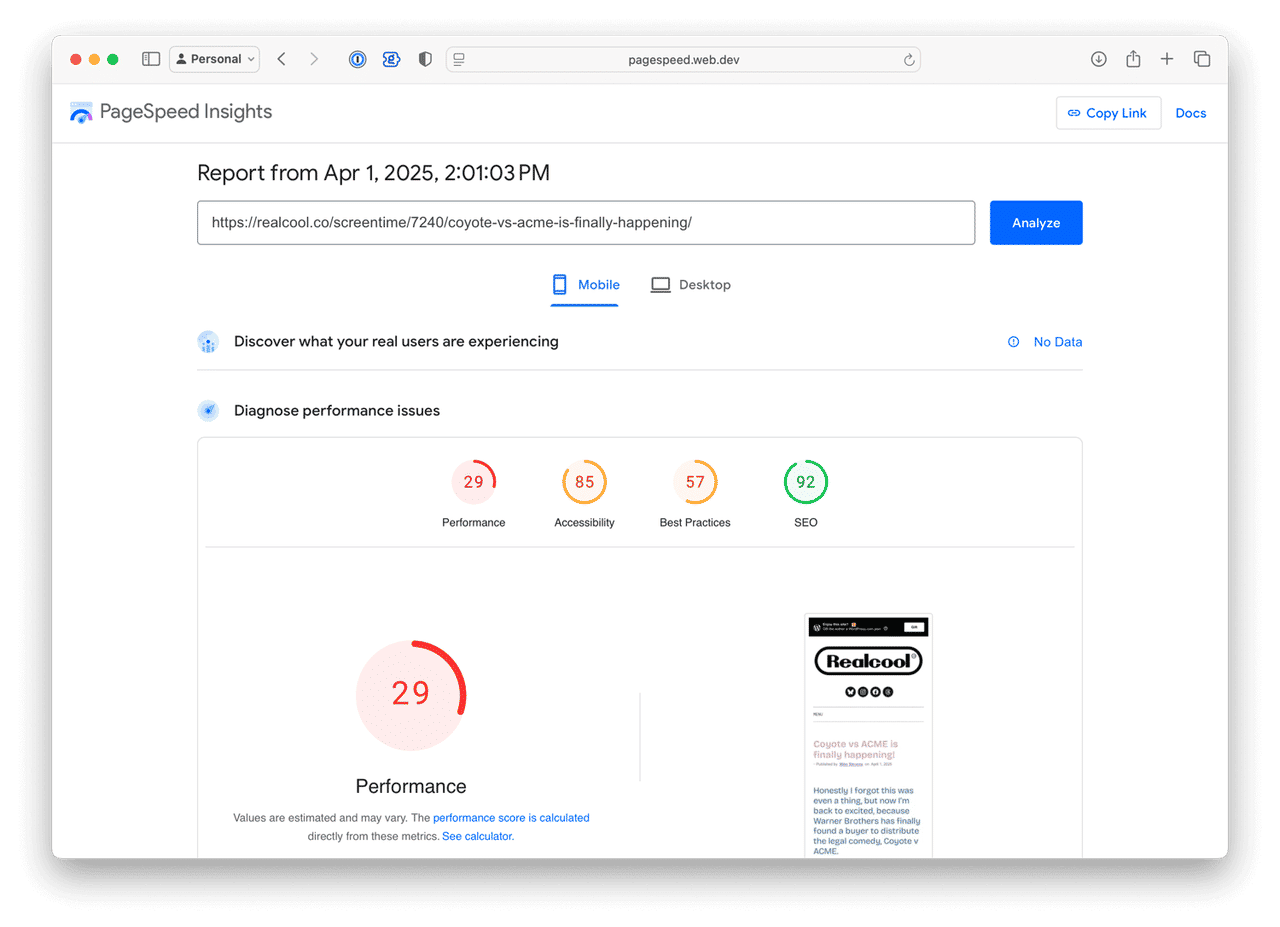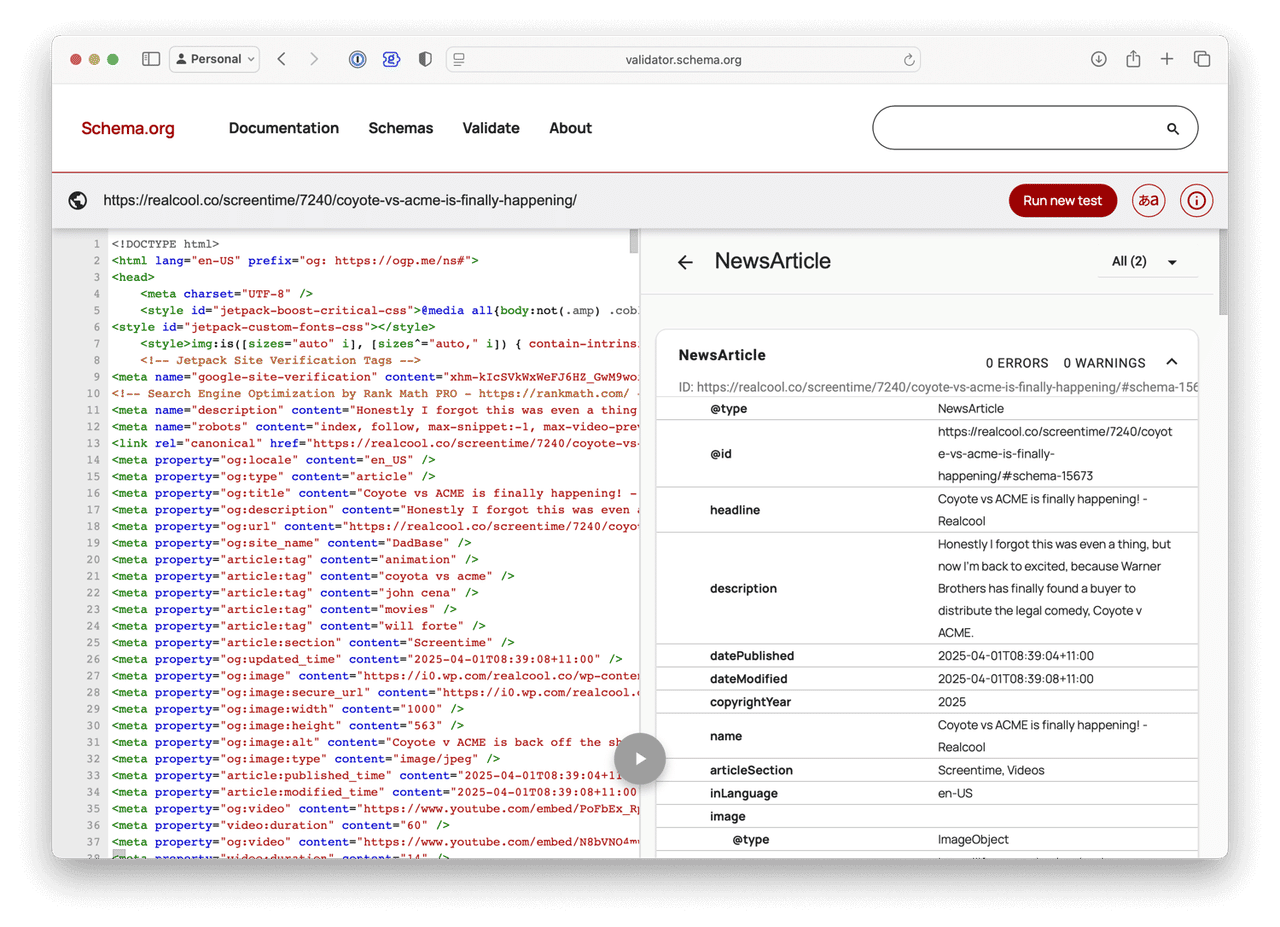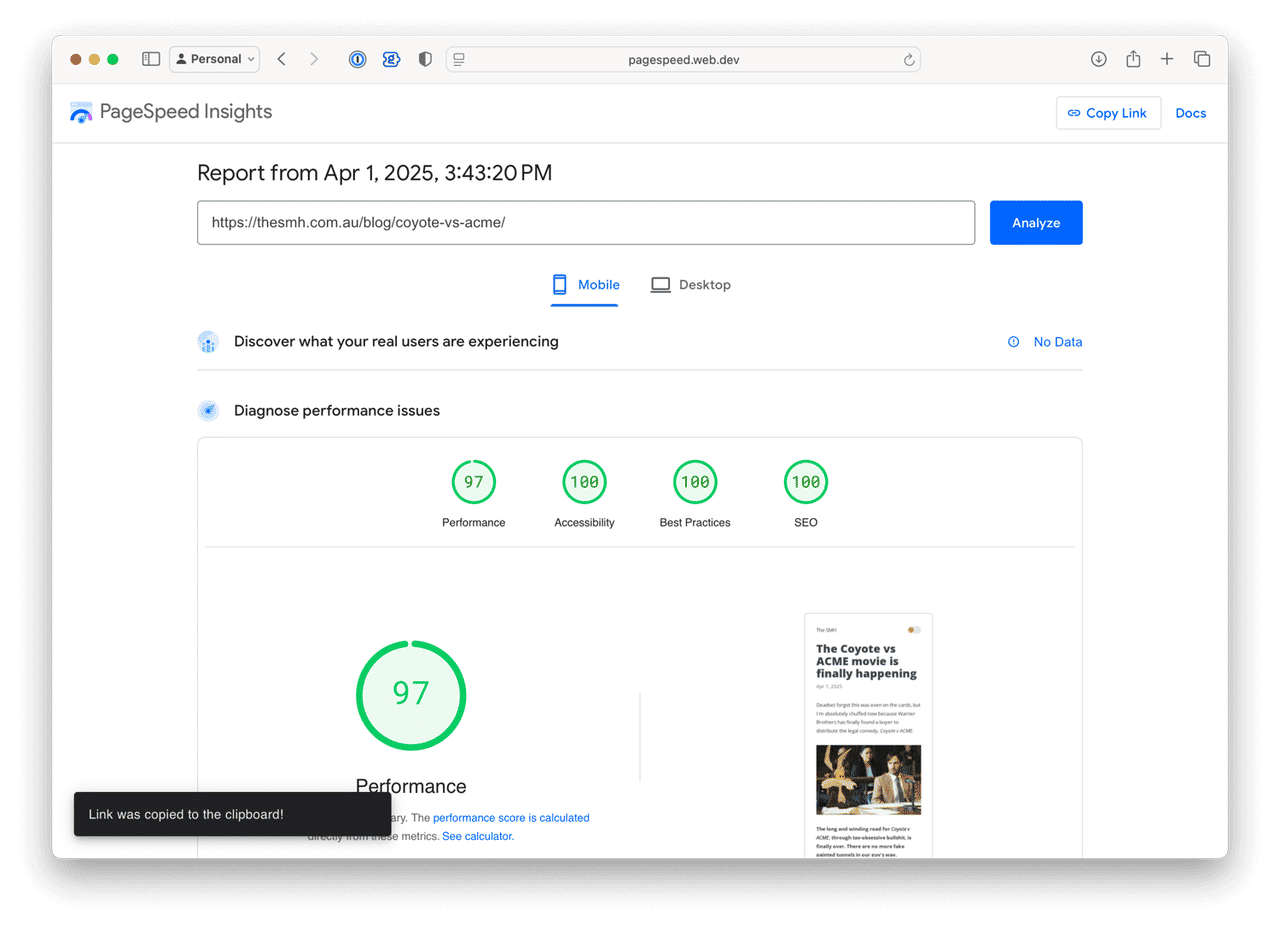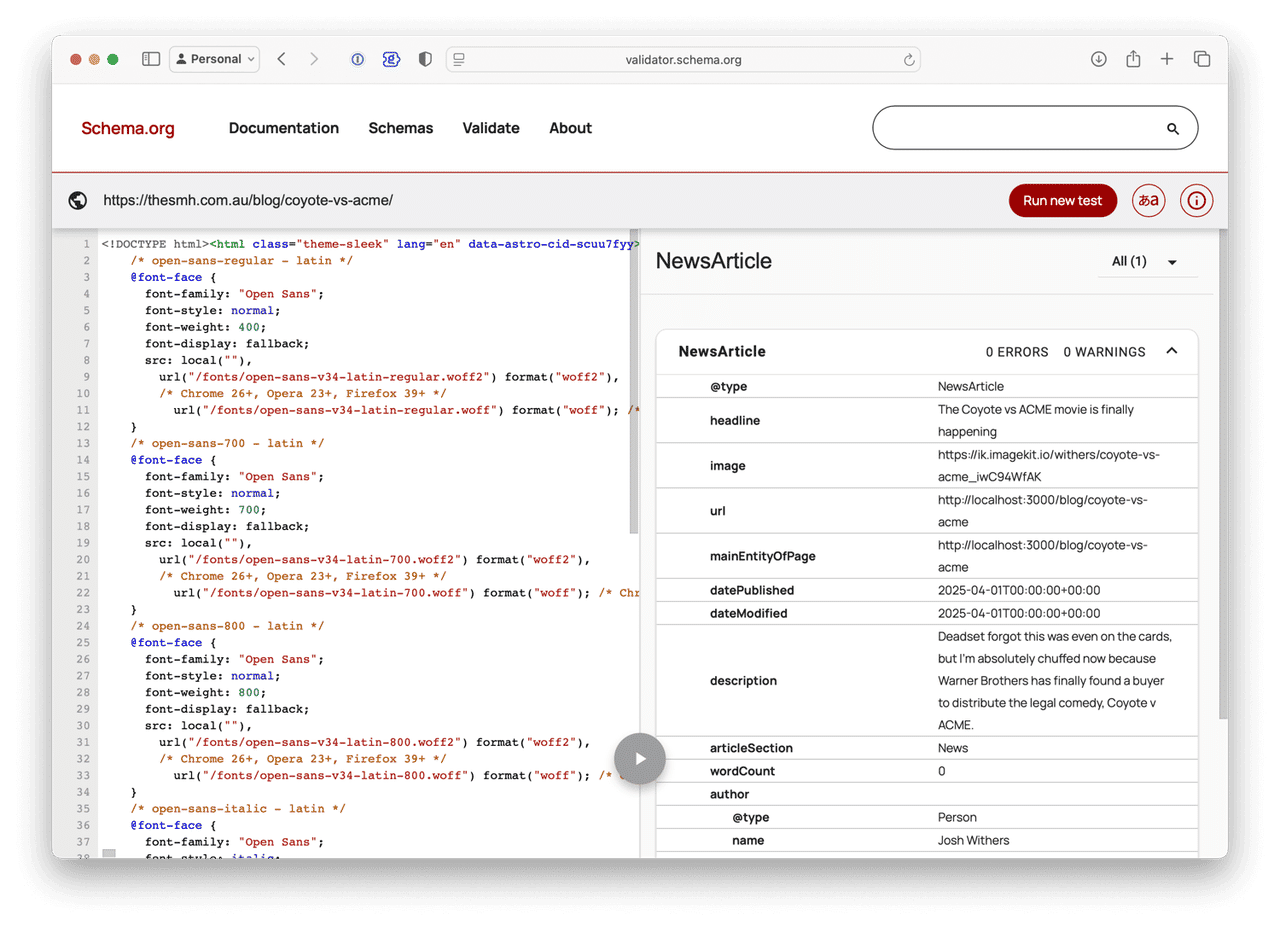My friend Mike published a new article on his website, Real Cool. It’s a good name, a good blog, with a good premise filled with good content.
But because Mike’s a good sport I’m using his post to demonstrate how easy it is to win today if you optimise your website for the search- and answer-engines.
It’s about
- creating web content that is fast to load - so the computing cost to the crawlers is lower, a signal to the engines that your website is cheaper to crawl and as a side-effect, users are more likely to like it because it loads fast;
- creating a website that is without html errors or bugs - a signal that you know what you’re doing;
- designing a website that is accessibility friendly so people different to you can use it, like people usinmg screen-readers, or increased font sizes, or other issues people might have - a signal to the engines that they can send anyone to your website and they’ll be welcome;
- telling the computer in a computer-enjoyed language what is actually on the page - we’re talking about using the schema.org markup language to tell the engines what is actually on the page, and not just the HTML code that the page is built from - test yours here.
And then you have to create the content or article that is relevant to the topics being searched for, prominent (well known by others) in the topic area you’re hoping to win at, if location is a factor then you want to display proximaty information, along with continually communicating that you are have experience, bucketloads of expertise, that you are an authority on the subject plus you are oozing in trustworthiness. PRR and EEAT are what the search and answer engines are looking for.
A case study into this article about Coyote vs ACME
Mike’s original blog post on his Wordpress.com blog which costs $72 a year to host:
The Google Page Speed Insights report for the original version of this article:
And because Mike’s using Wordpress.com it has (thankfully) injected the schema.org markup language into the HTML code of the page.
My version of Mike’s article
Because I can withstand a slap from Mike, I stole his blog post, had Claude re-write it and publish it on this blog which is built by Astro (free), running the Blogster theme (free), hosted on Cloudflare Pages (free).
My score would be 100 across the board if I wasn’t lazy and gave the image a width and height.
My Google Page Speed Insights report:
And the Rich Results for good measure but they’re not really discernably better or different from Mike’s:
The two other prominent factos here are domain authority and backlinks.
realcool.co has a domain authority of 11 and a spam score of -1.
thesmh.com.au’s dismal domain authority is 12 with a -1 spam score as well. It’s only a few weeks old.
So assuming both articles have the same (zero) backlinks because they are new articles, thesmh.com.au is more likely to rank before Real Cool’s article because it has more authority and the page speed scores are close to 100 on each test.
If winning at search is the game, reading the rules of the game and following them is the way to go.





